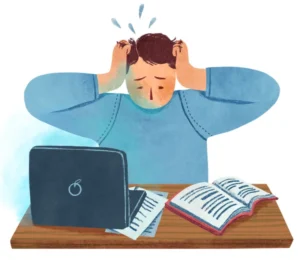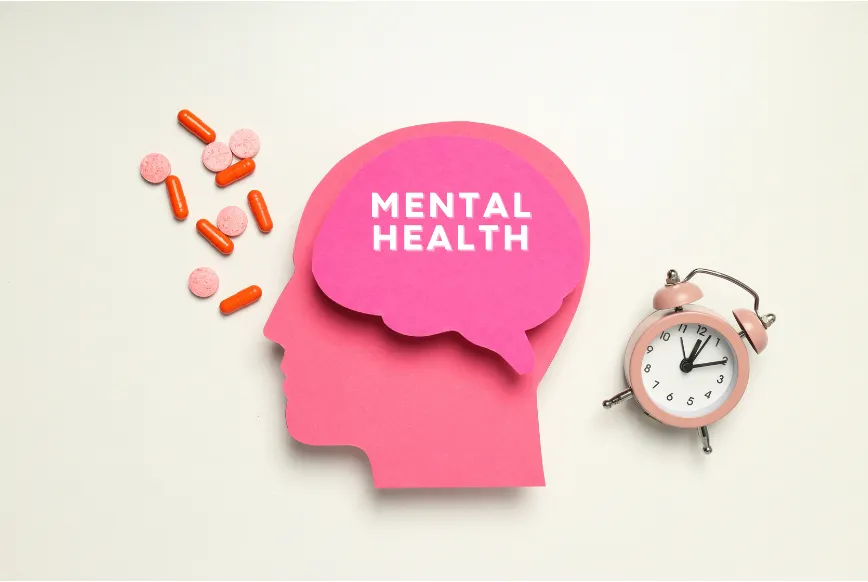Misinformation about Mental Health Is Frequently Ignored But Consequential
December 11, 2024

This post originally appeared here.
In discussions about misinformation, it is common to see certain topics covered, such as vaccines and reproductive health. While this makes sense because there is a lot of misinformation about these topics, often left out of the discussion is misinformation about mental health. While it may seem like less of a problem compared to rampant anti-vaccine ideology, misinformation about mental health is both prevalent and harmful.
We are all familiar with myths and misconceptions about mental health, which are quite common. These include ideas such as: mental illness is rare, people with mental illness are violent, mental health issues are a person’s fault or a sign of personal failing, and, perhaps most importantly and most damaging of all, mental health treatments don’t work.
While many are familiar with these myths and misconceptions, which are quite prevalent in our society, it’s less well known that mental health misinformation spreads quite frequently on social media, just like misinformation about vaccines, COVID, and other health topics. One study from 2023, published in the Journal of Medical Internet Research, found that spreading misinformation specifically about cognitive behavioral therapy (CBT) was quite common on TikTok. The authors found claims that CBT does not work in people with a history of trauma, autism, or ADHD, even though it is actually an evidence-based therapy in those demographics. They also found claims that CBT is harmful. They observed that self-proclaimed mental health professionals and lay people play equal roles in spreading harmful misinformation about mental health.
False claims about harms of antidepressants and benefits of non-evidence-based treatments like CBD oil for depression are also quite common on social media. There is also a high volume of misinformation about ADHD and other neurodevelopmental disorders on social media, particularly TikTok.
Arelatively recent TikTok phenomenon called “Undiagnosis” is particularly problematic. In these videos, users record themselves usually dancing to a song listing a laundry list of conditions they previously thought they had and then declaring themselves “undiagnosed.” The process of “undiagnosis” is littered with questioning whether serious mental illnesses even exist, which is obviously harmful to the mental health community’s need for people to take mental illnesses seriously as true medical conditions. While some have said that there’s some benefit to this kind of open conversation and that it may reduce stigma in some ways by making discussion about mental illness more acceptable, the potential harms are still obvious. People with mental illness conditions are being encouraged to decide they don’t actually have them. That can lead to dropping out of treatment or refusing treatment in the first place, clearly placing people at risk.
On the flip side, some therapists have reported a trend in which, prompted by misinformation they see on social media, some people give themselves erroneous diagnoses and demand ill-advised interventions. This can put the therapist in a tough spot.
There are several strategies therapists can try when confronted with patients sharing mental health misinformation, including:
- Asking probing questions (“what makes you say CBD oil is a cure for depression?”) versus outright, immediate correction, which can alienate patients.
- Educating about the differences between the ways certain terms (e.g., “trauma”) are used in a professional therapeutic context versus in layman’s terms.
- Always approaching with empathy and getting to know the information sources patients consume.
While broader discussion of mental health on social media is a good, anti-stigmatizing development, we have to be wary of misinformation. There are some helpful steps mental health providers can take when confronted with misinformation, and we can all be better stewards of good information.
Related Posts

How Not to Write a Health News Story
Posted in Health Communication
We have to do better at writing important health news stories.

What Are the Predominant Myths About SSRIs?: An examination and debunking
Posted in Depression
SSRIs have been in the news lately but not always with accurate information. Here we debunk some of the most common myths.

We Should Celebrate the Advances Vaccine Research Is Making: But Many Aren't
Posted in Health Communication
There are so many reasons to celebrate vaccines lately. So why are so many not partaking?